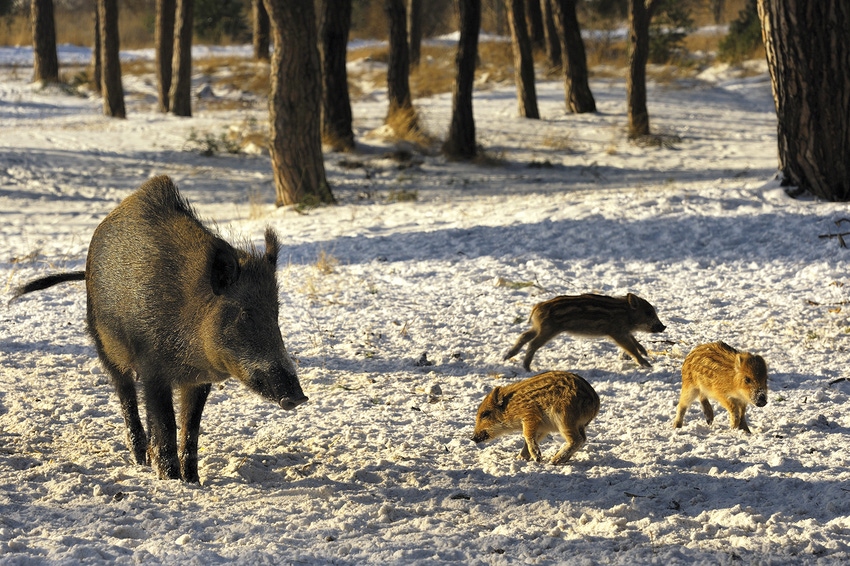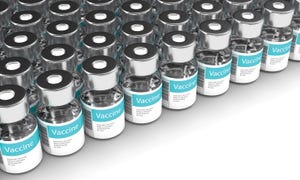Alberta continues to mitigate the spread of wild boar at large
UCVM team has also partnered with Alberta Pork on a program for pork producers and pig owners to monitor their farms for wild boar.
May 7, 2024

The Alberta Whole Sounder Trapping Incentive Program ended March 31 bringing the modified bounty component of the program to a close. For farmers experiencing wild boar damage to their fields, wild boar are included in the AFSC Wildlife Damage Compensation Program.
“The Alberta Invasive Species Council Squeal on Pigs! campaign continues to be extremely successful,” says Hannah McKenzie, wild boar specialist with the Alberta government. “We are receiving an increasing number of public reports of wild boar and escaped domestic pigs, showing that awareness of the issue is on the rise and people are taking action.”
The Alberta Pork trapping team is currently managing nine traps spread across Woodlands, Lac Ste Anne, Strathcona and Two Hills counties. Since 2018, Alberta Pork and Alberta Agriculture and Irrigation have removed 66 sounders (groups of wild boar) for a total of 410 wild boar, with almost 75% coming from Woodlands county.
All captured wild boar are humanely euthanized and sent to an Alberta Agriculture and Irrigation lab for necropsy. Samples are collected from each animal and shared with a research team at the University of Calgary Faculty of Veterinary Medicine (UCVM) led by Mathieu Pruvot. This team, supported by Results Driven Agriculture Research, is studying the distribution and ecology of wild boar and their potential to spread infectious diseases to livestock.
In addition to testing wild boar for diseases, the UCVM team has also partnered with Alberta Pork on a program for pork producers and pig owners to monitor their farms for wild boar. Participants receive a kit that includes a trail camera, two memory cards, a cable lock and batteries, to monitor their property for one year and report any interactions with wild boar.
“When this project is complete, participants will be able to keep the equipment in recognition of their contributions to monitoring efforts. We hope to expand this program to include other livestock producers and hunters.
“Looking ahead, we are focused on increasing our monitoring and trapping efforts in collaboration with Alberta Pork and municipalities, with support from the African Swine Fever Industry Preparedness Program and the Sustainable Canadian Agricultural Partnership. This summer we will begin systematically deploying remote cameras. Images from these cameras will help us better understand the distribution of wild boar across the province and their population trend in areas where we are actively trapping. We are also expanding trapping efforts with additional equipment and more boots on the ground,” says McKenzie.
You May Also Like



